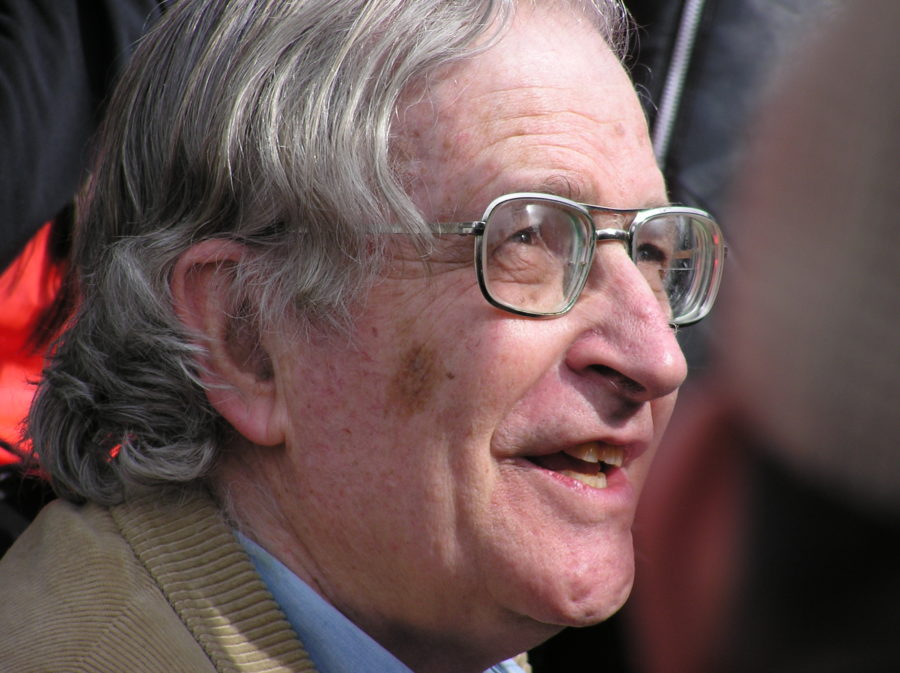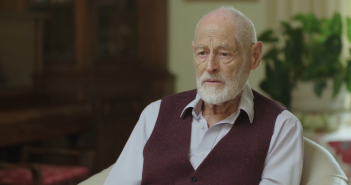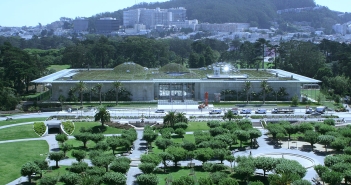They who have put out the people’s eyes reproach them of their blindness.
John Milton, ‘An Apology for Smectymnuus with the Reason of Church-Government’ (1642)
Unfortunately I just missed out on meeting one of the totemic figures of our time in Noam Chomsky. In 1997, as a Boston-based Harvard student, I was taken to visit an unprepossessing office inside an apartment block, only to find the veteran M.I.T. professor and author had left the building.
What remains to be said about the darling of the radical anti-imperialist left?
In my previous account of Michel Foucault, I touched on Chomsky’s revulsion towards post-modernism and moral relativism, and his acute anticipation of the post-truth zeitgeist. He was the first I think to point out that Jacques-the-lad-poseurs such as Derrida and Lacan were saying little of substance, and what they were holding forth on was nonsense on stilts.
Chomsky anticipated how post-modernist mumbo-jumbo would be appropriated by neo-conservatives to sow a culture of disinformation. Perhaps a scientific background in formal linguistics armed him with the rigour to cut through the morass. He has frequently spoken of his dislike of deceit, and adherence to Cartesian common sense.
Chomsky shares with George Orwell – another of our public intellectual subject-matters – a commitment to the truth and an almost mystic-like perception of how propaganda operates. This leads him into a degree of bemusement at popular culture that may come across as elitist. But he understands how a spectator democracy and a free-fall in journalistic standards has lead to Populist demagogues.
Manufacturing Consent
The effectiveness of political propaganda is managed by hegemonic media and other vectors of public opinion, which undermine democracy and promote a corporatocracy. This brought us Donald Trump rather than Bernie Sanders.
It is what Chomsky has termed Manufacturing Consent, borrowing a term from Walter Lippmann, whose Public Opinion (1921), argued for democratic control through a specialised class or cool observers to control the agendas, manipulating public opinion by means of clever illusions and simplification.
Chomsky borrows this insight to demonstrate how the media works through diversion and dumbing down. Popular energy is dissipated and voters infantilised.
Interestingly, a recent highly critical account by Chris Knight called Decoding Chomsky (2016) points out that for much if not all of his career Chomsky’s science, eminently debatable, has been totally disconnected from his political engagement.
From the outset of his career he has effectively relied on the promotion and funding of the military industrial complex, through the Massachusetts Institute of Technology (M.I.T.).
Why? Well it seems they quite like the idea of an anti-establishment token radical on their payroll. It gives them a degree of legitimacy, at least as long as his voice is not heard too widely. Indeed, in other countries he might be regarded as a class traitor.
Moreover, his ground breaking hypothesis of human beings possessing an innate syntactical language of deep structure, contrary to the claims of behaviourism assisted the Pentagon in an ultimately fruitless search for a computer encoded Esperanto. They were seeking a common dumbed down language that could be used for commercial and corporate purposes: a precursor to the patois of social media perhaps.
It is important to recall that as an American academic he has had to navigate a snake pit of careerist in order to make his mark. One should recognise the constraints of working within a uniformly commercial culture that encompasses the universities.
Knight maintains that psychologically his ab initio common-language-from-nowhere linguistic theory, and advocacy, promoted isolation, and led to a form of cognitive dissonance that influenced his political beliefs. In effect, Knight alleges, he became a neurotic at odds with the rest of society. The accusation thus is one of hypocrisy, or like Oscar Wilde’s Dorian Gray, he has been living an alternative life.
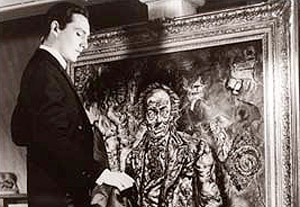
A Picture of Dorian Gray
Knight also maintains that when his critics maul his ideas on linguistics he reverts to ad hominem tactics, dogmatism, with counter evidence dismissed in favour of his own mystical vision, which is precisely the kind of self-evident-genius-argument I despise.
So I am certainly not fully persuaded by his linguistic theories but convinced indeed, unlike Knight, that the institutional support has brought him unique intellectual influence and responsibility – perhaps manipulated for his own ends – but for the good of humanity: as Chomsky is a principled man.
The Public Intellectual
One of his very early pieces, much modified, is brilliantly written on a theme close to my heart: the responsibility of the public intellectual.
Chomsky draws a clear distinction between the ever more prevalent academics who sing for their suppers, and parrot for promotion, and those who take the difficult path of what Albert Camus would call engagement.
Today, value-orientated intellectuals are likely to be dismissed as troublemakers in our short term universe of disposability. The generalist is lost in the mix.
Chomsky in fact is very conscious of how, ever since Jimmy Carter, right-wing, Christian conservatives in America have warned against the radicalisation of the young, and are now hell bent on purging radical thinkers from citadels of learning.
The universities and the media engage in self-censorship to suit corporate paymasters. The polite-paper-paradigm meets with incredulity at the nuclear explosion of true dissidence. I discovered this under martial law-like conditions when giving a Rule of Law paper in Trinity College Dublin. On offering robust opinions I was told there would be no circulation of the paper, and another invitation was unlikely.
In Manufacturing Consent (1988), Chomsky demonstrates how market forces and the neo-liberal agenda compel colleges and the media to select topics within defined parameters. This restricts debate and brings the nonsense of ‘balanced’ coverage, and the filtering of information with an over-emphasis on tone. Appropriate tone. Authorities fear upsetting corporate sponsors, leading to the rule of political correctness by the banal.
More to the point, Chomsky is attuned to the independent stance of public intellectualism, which we have all but lost.
Henry Kissinger
Chomsky has also written about Richard Nixon’s National Security Advisor Henry Kissinger, a dangerous war criminal still in our midst, and how he exterminated or was complicit in the extermination of East Timor, which was absorbed into Indonesia during the American-backed Suharto dictatorship, with tremendous loss of life and Crimes Against Humanity.
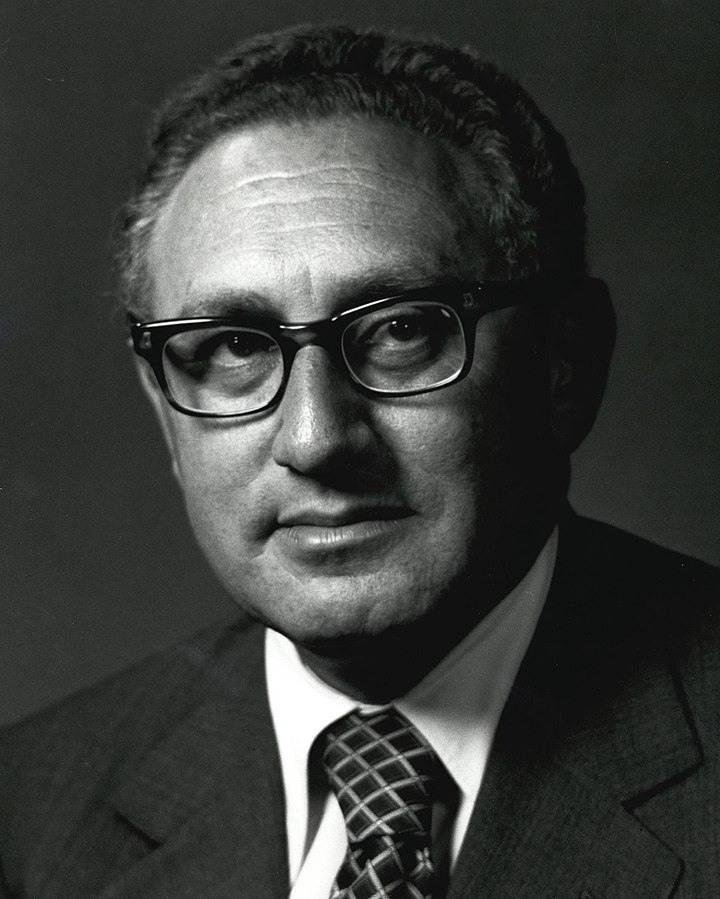
Still in our midst. Henry Kissinger.
In the documentary Manufacturing Consent, like George Orwell, Chomsky is attentive to the misuse of language to justify atrocities. Thus in East Timor the invasion was code-named Operation Clean Sweep. More sotto voce language distortions to justify ethnic-cleansing, itself a term sanitising Genocide that only came into being during the Yugoslav conflict of the 1990s.
The book Manufacturing Consent sets out clearly how American foreign policy, from Vietnam to the Bush wars, moulded the message and demonised the Other. Even if we are wrong we are right, and embedded reporters will exonerate any wrongdoing. If, like the claims of weapons of mass destruction used to justify the invasion of Iraq, the truth is damaging, we ignore it.
Thus a world is divided into worthy and unworthy, with the lenses of the powerful never turned on themselves. Enemies are reduced to vermin to be exterminated, and democratically elected socialists like Salvador Allende in Chile in 1973 are, if necessary, removed from office. That’s because democratic socialism is contrary to American values. Better to have a son of a bitch, so long as he’s our son of a bitch. If our boys are engaged in terrorism, it is not really terrorism. If we murder vast numbers of civilians it is hardly Genocide.
As Chomsky reminds us, democracy has to be subverted to purge the average citizen of consciousness, and the critical faculties necessary for it to function.

‘Socialism is contrary to American values.’
Hegemony and Survival
Another crucial text, Hegemony and Survival (2003) demonstrates how the elite regard democracy as, in effect, a spectator democracy. To paraphrase Alexander Hamilton, the ordinary person must be deemed irresponsible and kept within strict confines. He should not be allowed to vote in his interests, or even consider them.
From Vietnam to the present day U.S. Imperialism has dismissed unworthy races. Those who are not a part of the twenty percent who control the planet are to be excluded and disempowered. A culture of dissent is expurgated.
In Hegemony and Survival he sees clearly the beginning of what Stieglitz called The Great Divide (2017), and development of a lunatic neo-liberal hegemony. That divide now has led to the destruction of the middle class, and the cartelisation of wealth into ever decreasing hands
The corporations control the press, leading to self-interested non-reportage by job preservers, reporting beyond the neo-liberal straightjacket is not permitted. The Irish Times in Dublin is a totemic exemplar of the decline of independent media.
As he mentions in his book on propaganda Media Control (2002) state propaganda is used and supported by the educated classes in order to exclude those less fortunate from the discussion. The responsible people, which Yannis Varoufakis would call the Adults in the Room, exclude the herd from infecting their decision-making. Thus people are atomised, segregated and alone. Scholarship becomes conformist and lies beget and compound lies. Scholars who show an independence of spirit are de-frocked.
That which the media excludes is dictated by corporate ownership and advertising paymasters, bringing stories that focus on less central issues, or infomercials masquerading as news.
Thus the thinking public á la Cambridge Analytica is fed disinformation, dictating and influencing popular misconceptions, problems and prejudices.
Ten facts about media control
Chomsky summarises the ten facts of media control which I further synopsis:.
- Distraction: compel the public to focus on irrelevance and chatter in our Brave New World. Overload them with nonsense. Press control from Murdoch to social media augments this.
- Generate Problems that do not exist and do not need solving: Bail out the banks to enforce fiscal stabilisation and impose austerity on those who have no responsibility for the mess. Reinforce the message, TINA (there is no alternative) but fiscal stabilisation.
- Gradualism: Brexit is likely to lead to the slow death of the NHS. First deny it to non-nationals, then to the socialists… Once the British public is conditioned to the idea, pull the plug out altogether and fully privatise.
- It will be better in the long run if you take your medicine now. The short sharp shock of austerity. No it will not.
- Kill people’s critical faculties and infantalise them. The Greeks and Irish are merely children anyway. Appropriate adults in the room, in the form of the IMF, have arrived to tell you what to do.
- Appeal to Emotion, frenzy, hysteria and not rationality. Thus our world is being torn apart by mob orators pulling at the heartstrings.
- Disinform and create a sideshow. The public are being fattened up by bread and seduced by circuses of the absurd, causing us to lose sight of the real point.
- Pander to bland consumerism. Assure people constantly that they have never had it so good. Brexit will create unlimited prosperity. Drug people with disinformation like soma from A Brave New World.
- If we have acted criminally and are powerful then it is your fault and your responsibility. You are derelict because we are criminals, but we never acknowledge that.
- Play the person not the ideas. Then if the person is troublesome go after their relationship structure, or just make them disappear.
Here's Trump's full speech in response to Iran.
Worth watching every second. pic.twitter.com/hCoX6Hu9Ps
— Caleb Hull (@CalebJHull) January 8, 2020
Chomsky cuts against the salon culture of the Enlightenment, championed by Jürgen Habermas. The challenge lies in counteracting the disconnected memes and silo bubbles of self-interest that the world’s elite direct at us.
Data retention
Orwell’s idea of double speak from Nineteen-Eighty-Four dovetails with Chomsky’s significant observation that it is much more important to have less data, but to have greater understanding or indeed comprehension of what we do hold on to.
That requirement for nuance, judgement and perspective is dissipating rapidly. We are addicted to useless information and data retention, not comprehension or understanding. We are now bombarded with a deluge of superfluous information by social media. More to the point the useless data and bricolage condition our judgment, as it must in order to survive.
How many now join up the dots as Chomsky has and bring them into common sense utterance in simple plain speech and with social engagement? Very few. Very few from the academic community at least. Chomsky is right that the time servers and corporate drones of academia are deliberately or intellectually missing the Big Picture.
One point he has not addressed is how the current neo-liberal rewarping of human identity is creating social atomisation and political disconnection. We are now so embroiled in what we do that we hardly ever question it or fully understand the machine behind it. We no longer have time to consider what we are doing.
Chomsky quotes Robert McNamara in Manufacturing Consent to the effect that all the power brokers are interested in is quiescent serfs dedicated to personal wealth maximisation, not a culture of dissent.
McNamara, a brilliant but non-deviant character, was an ultra-competitive and narrow-minded technocrat which made him complicit in the carpet bombing of Tokyo and the Vietnam war. He even acknowledges that had he been on the losing side he could have been prosecuted for war crimes. If only McNamara had slightly wilder college days.
So the masses are duped by propaganda and caught by a Social Darwinist cult that Chomsky despises. Paradoxically, Chomsky is himself a survivor in that world, and has had to make his compromises, as we all do. ‘You’re going to have to serve somebody,’ as Bob Dylan sang.
Optimism Over Despair
Nonetheless, as Chomsky argues in his new book, we need Optimism Over Despair (2017), perhaps a social-democratic New Deal, checking unbridled capitalism.
As creatures of bounded rationality in an increasingly over-specialised world the Big Picture is a luxury perhaps, reserved for a corporate- and military-funded former M.I.T. Professor. He now operates from a salubrious post-retirement position in Arizona – the greatest quality of life retirement home in America – which is not to be in the least dismissive of Chomsky’s staggering achievements.
Chomsky rightly regards the U.S. as a terror state that acts without restraint, while accusing others of the same crimes. Thus the labels of terrorism and counter-terrorism conceal a multitude of agendas and doublespeak, while permitting the basest acts.
I am unconvinced by the evidence for a common nascent language of universal and deep structure. Chomsky has never explained adequately the idea of recursion, a kind of infinity of deep structure, and thus the linguistic ideas appear counter-intuitive and perhaps fundamentally incorrect. But I claim no expertise in this domain. Nonetheless, I cling to the belief that there is a common universal of pragmatic compunction, though varying in context and time.
Of course none of that is to gainsay or contradict the clear speech of his inter-subjective and all-encompassing journalism and political tracts, for which he deserves great praise.
Responding to Chomsky
Here I summarise the injunctions I have gleaned from Chomsky’s work:
- Think independently and do not buy into the mass media consensus. Remain acutely vigilant to doublespeak technobabble. Hearing euphemisms such as ‘politically impossible,’ ‘fiscal stabilisation,’ ‘military intelligence’ or ‘known unknowns’ should sound off alarm bells.
- Question how implausible nonsense is considerable acceptable, and campaign, if at all possible, for freedom and justice.
- Assert the importance of historical memory, as Milan Kundera emphasised. In laughter all evil is compacted as Friedrich Nietzsche wrote. If we fail to remember, we’re sure to repeat the same obscenities.
- Oppose fascism in all its current incarnations, including corporate fascism. Do not sympathise with your captors or enemies.
- Recognise true hypocrisy for what it is. The hypocrite is someone who applies to others standards they refuse to apply to themselves, of which American foreign policy is a paradigmatic case. Remain flexible and non-puritanical however.
- Understand that the definition of terrorism is manufactured by a terrorist corporate and state elite. Just as the French tortured in Algeria, the Americans did the same in Guantanamo Bay. Yet both claimed the high moral ground. Terrorism is only what they do to us.
- Resist the rise of moral relativism, which is part of a triage of evil (joining post-truth and neo-liberalism) that Chomsky identifies in the U.S. Republican Party, which he has singled out as the most dangerous political organisation on Planet Earth.
- Acknowledge how the cost-benefit analysis of neo-liberalism is turning us into homo economicus, making us lose compassion for one another, besides generating environmental catastrophes.
- Embrace the educational tools necessary to defend oneself, and develop communities of resistance within rapidly atomising societies.
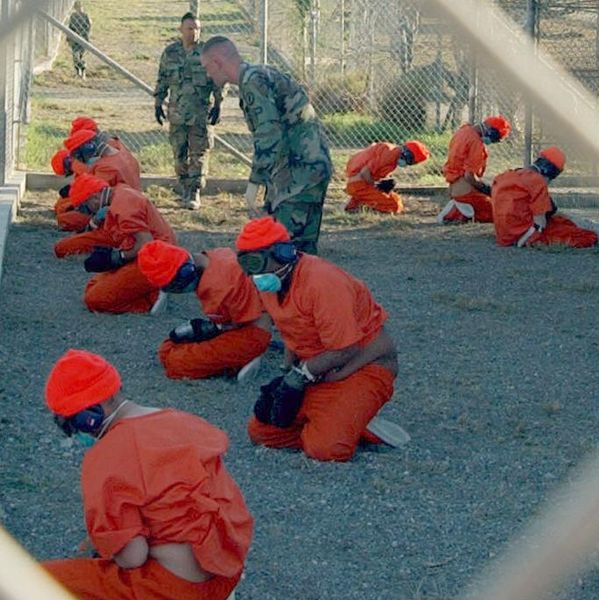
Interrogation carried out in Guantanamo Bay.
*******
Perhaps the most disturbing idea that comes through in Knight’s book about Chomsky does not apply to him directly, but relates to how the political ground has moved so far to the right that Richard Nixon, who supported environmental initiatives, Keynesian economics and state-funded medicine, might now be labelled a Communist.
If Chomsky manipulated the corporatocracy to achieve and advocate his political views I would tend to applaud rather than condemn him. To penetrate the orifices of the establishment and to subvert from within is surely a great achievement in itself. It’s always better to be pissing out than pissing in, for as long as you can anyway.

